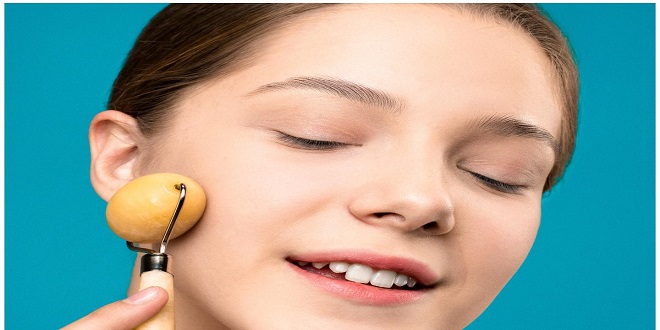Erectile Dysfunction’s Effects On Your Life And Health

If you have erectile dysfunction, you may be wondering what your options are. You can take action to correct the problem, and even reverse the condition. In this article, you will learn about the incidence of the condition, treatment options, and the ins and outs of treatment.
Treatment options
The first step in treating erectile dysfunction is to identify and address the underlying cause of the condition. The condition is often associated with other underlying medical conditions. It is not likely to pose a serious health risk, but it can affect many areas of your life and health.
You should consult a medical professional for an assessment of your condition, and your doctor will likely suggest a treatment plan that’s right for you.
Surgery is another treatment option. A doctor will perform a 30 to 45-minute surgical procedure to implant a water-based device into the penis. This device will help men achieve a longer-lasting erection.
This option is considered the closest to a complete cure for ED, but there are other treatments available that may help you cope with the symptoms. Penile rehabilitation can also include physical exercises and the use of vacuum erection devices.
Sexual therapy can also help men manage their ED symptoms. In addition to teaching men how to cope with their problems, counselors can also provide support for men and their partners. Some doctors recommend hormone replacement therapy for men suffering from ED. These treatments are often only used in conjunction with counseling and should only be tried after a physician’s evaluation.
Other treatments for erectile dysfunction
Other treatments for erectile dysfunction include a variety of medications. Medications are available over the counter and on the internet. However, these medications are not recommended for men with certain medical conditions, including liver or retinal disease. It is also important to note that there are potentially dangerous side effects associated with taking these medications.
Erectile dysfunction is a common condition affecting up to 30 million men in the U.S., and if left untreated can lead to serious underlying medical conditions. It can affect a man’s confidence, lead to stress, and contribute to relationship problems. While ED is often embarrassing to discuss with a primary care provider, there are treatment options available.
There are many causes of ED, including neurological conditions. It may also be caused by medications that affect the nervous system, such as opioids. Alcohol and drugs that affect the nervous system are also common causes.
Additionally, some people experience ED because they are taking certain medications for cardiovascular or blood pressure issues. Solve your health issues with Cenforce 150 mg and Kamagra Jelly.
Incidence
A study by the Johns Hopkins Bloomberg School of Public Health examined the relationship between age, physical activity level, and erectile dysfunction. The results showed that men over age 40 and those with diabetes were at increased risk for erectile dysfunction.
In addition, those with cardiovascular disease or high blood pressure were at an increased risk of erectile dysfunction. However, lifestyle changes can prevent the progression of these conditions and reduce the incidence of erectile dysfunction.
Several studies have revealed that up to 50 percent of men suffer from erectile dysfunction. However, the prevalence rates vary depending on the definition of the disorder and the age distribution of the participants. Studies have also indicated that age is the most important risk factor for ED. In addition, up to 70% of men with ED do not receive treatment.
ED can also affect the health and quality of life of men of all ages. Those with ED may not be as active in their social life as younger men. However, this does not mean that a man cannot still be sexually active. Research has shown that some men can remain sexually active until their 80s.
The study design allowed for accurate estimation of the risk factors and the control of potentially important confounders. Furthermore, the study population was as close to the general population as possible. The group was composed of individuals who were free-living and non-institutionalized. In addition, only a small proportion of men with ED suffered from other health problems, including stroke.
Erectile dysfunction has a strong relationship with psychological health. Men with diabetes, cardiovascular disease, and decreased HDL levels are at a higher risk for erectile dysfunction. Additionally, patients with a history of trauma are more likely to experience erectile difficulties.
Erectile dysfunction
If you or a partner suffers from erectile dysfunction, treatment is available. With the right lifestyle changes, ED can be cured and can even be reversed. One recent study published in The Journal of Sexual Medicine reported that nearly one-third of men with erectile dysfunction were cured after undergoing treatment. A men’s health specialist or urologist can prescribe medication and lifestyle changes to improve sexual function.
Diet is another factor that has an important impact on erectile function. Men who eat a balanced diet are at a lower risk of erectile dysfunction. Furthermore, men who eat a Mediterranean or AHEI-2010 diet are more likely to be free of erectile dysfunction.
Erectile dysfunction is not normal, but it affects approximately one in 10 men at some point in their lives. The condition often comes with other symptoms, including problems with ejaculation, low libido, and lack of desire. While erectile dysfunction isn’t normal at any age, it’s important to seek treatment and prevent further complications.
Understanding the molecular mechanisms involved in erectile dysfunction has led to the development of novel pharmacotherapeutic approaches. Many of these new therapies are being developed and described in the research literature. In mammalian species, erectile function is crucial to survival and reproductive success. When one pathway fails, another one must compensate to restore erectile function.
Penile implants, or penile prostheses, are considered the closest alternative to a natural erection. This procedure is successful in 95 percent of cases, and patients have a high satisfaction rate with the procedure. The surgery requires only one or two small incisions. However, complications can occur, including infection and mechanical device failure. Despite the complications, penile implants are an excellent option for ED.





